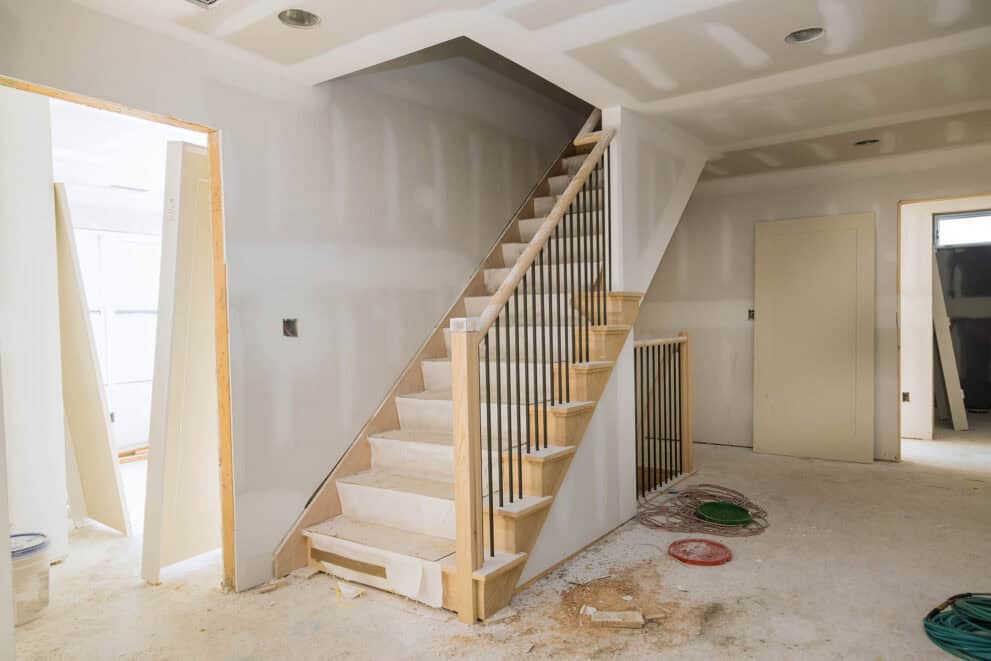Insulating your home can be an effective way to reduce your energy consumption and save money on your utility bills. Insulation helps to keep your home warm in the winter and cool in the summer, reducing the need for heating and air conditioning. Additionally, it can also improve the overall comfort of your home by reducing drafts and noise.
By insulating your home, you not only make your home more energy efficient thereby reduce your energy bills, but also help to reduce your impact on the environment, making it one of the most effective ways to reduce your carbon footprint and contribute to sustainability.
The UK government offers incentives and rebates for homeowners who invest in insulation, making it an even more cost-effective solution.
In this briefing note, we discuss tips and tricks to help save on your energy bills via insulation methods and government grants.
What is the most effective insulation for a house?
When choosing the right insulation material for your home, there are several factors to consider, including thermal performance, moisture resistance, fire safety, cost, ease of installation and environmental impact.
The climate in which the house is located and the type of property will also determine the most effective insulation for you to use in your house. Here are some of the most common types of insulation and their effectiveness:
Mineral wool insulation: This type of insulation is made from rock or glass fibres and is one of the most commonly used insulation materials in the UK. Mineral wool insulation has excellent thermal and sound insulation properties and can be used in walls, lofts, and floors.
Cellulose insulation: This is made from recycled paper and treated with chemicals to make it fire retardant. It can be blown or sprayed into walls and attics and has excellent sound insulation properties.
Spray foam insulation: Spray foam insulation is made by mixing two chemicals that react and expand when sprayed onto a surface. It provides excellent thermal and sound insulation and can be used in walls, roofs, and floors.
Sheep wool insulation: Sheep wool insulation is made from the fleece of sheep and is an eco-friendly and sustainable insulation material. It is also naturally fire-retardant and has excellent sound insulation properties.
Polystyrene insulation: Polystyrene insulation is a lightweight and affordable insulation material commonly used in walls and roofs. It is available in both rigid foam boards and expanded polystyrene beads.
Overall, the best insulation material for a UK home depends on several factors such as performance, cost, environmental impact, and ease of installation. A professional insulation contractor can help you determine the best insulation for your specific needs. They can also provide installation services to ensure that the insulation is properly fitted and functioning at maximum efficiency.

Who is entitled to free insulation?
In the UK, there are several schemes in place that provide free or subsidised insulation to eligible households. These schemes are designed to help households reduce their energy consumption, lower their energy bills, and reduce their carbon footprint.
Households receiving income-related benefits or tax credits can apply for grants to cover the entire cost. You must also own or rent the property from a private landlord. Tenants of a council or housing association may be eligible for assistance if they own half or more of the property.
Homeowners and private renters who receive certain benefits, such as Universal Credit, Working Tax Credit, Income-based Jobseeker’s Allowance, Income Support, or Pension Credit are eligible for insulation grants, as are homeowners and private renters who live in a property with a low Energy Performance Certificate (EPC) rating and those who live in a rural area and are not connected to the gas grid. Adding to this, landlords who own rental properties and have tenants who receive certain benefits can be eligible, and the same applies to homeowners and private renters who live in an area that is designated as a “priority group” by the government.
It’s important to note that eligibility for free insulation can vary depending on the scheme and location. To find out if you are eligible for free insulation, you can contact the Energy Saving Advice Line or check with your local energy supplier or local council.
How can I insulate my house cost effectively?
Insulating your house can help you save money on your energy bills, but it can also be expensive. However, there are several cost-effective ways to insulate your house.
These simple, cost-effective steps can make a big difference and help you insulate your home:
Seal air leaks: Air leaks can account for up to 40% of heat loss in a home, so sealing gaps around windows, doors, and electrical outlets can be a cost-effective way to reduce energy consumption. You can use caulking or weatherstripping to seal air leaks.
Use draft stoppers: Draft stoppers are long pillows that can be placed at the bottom of doors to prevent drafts from entering the home. They are inexpensive and easy to make yourself.
Install curtains or blinds: Thick curtains or blinds can help keep heat in during the winter and out during the summer. You can purchase insulated curtains or make your own by adding a layer of insulating fabric to the back of the curtains.
Put down rugs: If you have hardwood or tile floors, placing rugs on the floors can help insulate the room and keep it warmer.
Use plastic window insulation: Plastic window insulation kits can be purchased for a low cost and can be used to cover windows during the winter to reduce heat loss.
Insulate your attic: Insulating your attic can be a cost-effective way to reduce heat loss. You can purchase loose-fill insulation or batt insulation and install it yourself or hire a professional.
Insulate your water heater: Wrapping your water heater in an insulating blanket can help reduce heat loss and save energy.
Overall, there are several cost-effective ways to insulate your home. By sealing air leaks, using draft stoppers, and using curtains or blinds, you can reduce heat loss and save money on your energy bills. Additionally, insulating your attic and water heater can be cost-effective ways to reduce energy consumption.

Can I get a grant from the UK government to insulate my home?
Yes, there are several grants available from the UK government that can help you with the cost of insulating your home.
If you live in a flat, you may be eligible for insulation, but you may need consent from all neighbouring properties, especially for cavity wall insulation since the cavity is often shared.
If rent your home, you may still be eligible as long as you have the landlord’s permission. The grants are typically not available to tenants of housing association or council properties because those are covered by other schemes.
Here are some of the most common grants:
Energy Company Obligation (ECO): The Energy Company Obligation is a scheme that requires energy suppliers to provide energy efficiency measures to households that need them most. The scheme is aimed at low-income households and those living in fuel poverty. The measures provided under the scheme include insulation and boiler replacements.
Grants available in the ECO insulation scheme are:
Local Authority Grants: Some local authorities offer grants to help homeowners and landlords with the cost of improving the energy efficiency of their homes. The grants may cover the cost of insulation, heating upgrades, and other energy efficiency measures.
Warm Home Discount Scheme: The Warm Home Discount Scheme is a government scheme that provides a yearly payment of £150 towards electricity bills for eligible households. The scheme is aimed at low-income households and those at risk of fuel poverty.
If you have been unsuccessful in a previous grant application, the government recommends trying again every six months because the criteria does change. Fill out the Cavity Grants application form on the government grants website and your local assessor will let you know if you qualify. Before applying, determine which insulation measure is best for your property, especially if your walls have a cavity, as the grant process differs for each type. If you are unsure you can find advice on how to tell how your walls are likely to be constructed on the UK government website.
House insulation tips and tricks: Save on your energy bills – A summary
There are various materials and methods to insulate your home, as well as several government grants available to homeowners, tenants and landlords. By implementing these insulation tips and tricks mentioned in this article, you can significantly improve your home’s energy efficiency, reduce your carbon footprint, and save money on your energy bills.







